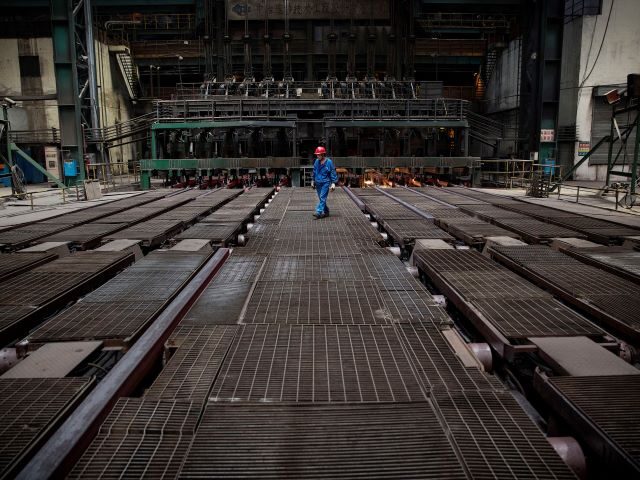China’s summertime energy crisis intensified on Wednesday with news that factories in Sichuan province have been ordered to halt production for at least six days.
Sichuan is a major source of lithium for batteries and solar panels, so ripple effects from the shutdown are likely to affect electric car and green energy companies in the U.S. and around the world.
Australia’s News.com described the “urgent notice” for factory shutdowns, sent to 19 of Sichuan’s 21 cities, as part of a “nightmare scenario” for China.
The notice said Sichuan is experiencing its highest temperatures in 60 years, coupled with a steep reduction in rainfall, so hydropower generation is falling even as demand for electricity soars.
At least one major manufacturer is already posting big losses from the factory shutdown order, and both corporations and public officials apparently fear the shutdown could grow even longer and more costly:
Already, Sichuan fertilizer producer Lutianhua has predicted a $US4.4 million ($A6.3 million) reduction in net profit as a result of the shutdown, according to a notice on the Shenzhen Stock Exchange, while China’s National Bureau of Statistics spokesman Fu Linghui acknowledged in a press conference that the heatwave had already led to “adverse effects on economic operations”.
And it’s likely to get worse before it gets better, with a meeting between officials coming to the conclusion that “the weather with high temperature and little rain will continue for a period of time, and it is necessary to focus on protecting people’s livelihood, safety, and operation, and make every effort to protect the power supply”. The meeting also called for “extreme thinking to deal with extreme situations” as officials “plan for the worst” during the “current severe situation”.
Global analysts warned Sichuan’s factory halt could dramatically increase the prices of lithium, aluminum, and other metals, potentially affecting everything from automobiles to iPhones. China’s already depressed economy will probably take another big hit from the August factory closings. Sichuan is normally a net exporter of power to neighboring provinces, so the hydropower shortage could spread power shortages far beyond Sichuan’s borders.
The Sichuan Provincial Department of Economics and Information Technology estimated hydropower reservoirs are down by up to 50 percent. Sichuan largely escaped the blackouts that plagued China last year due to a shortage of coal, thanks to its reliance on hydroelectric plants for 80 percent of its power, but this year China increased its coal production and imports to dizzying levels, while the hydropower industry has suffered from droughts.
Some cities in Sichuan are imposing total blackouts for a few hours a day or ordering large buildings to turn off their air conditioning or raise their thermostats to nearly 80 degrees. Power-hungry luxuries such as water fountains and light shows have been suspended until further notice.
Power rationing was ordered for civilian homes, offices, and retail shops across Sichuan on Wednesday – an unusual move in China, which generally tries to avoid citywide brownouts and severe power cuts to individuals.
AFP reported on Wednesday that over five million people in southwest China are now facing power cuts, with rolling blackouts lasting up to three hours in both big cities and their surrounding villages.
A Toyota representative told AFP the Japanese automaker was forced to halt production at a plant in Sichuan’s capital of Chengdu, in accordance with the “guidance” of local officials.
The European Union Chamber of Commerce in China confirmed on Wednesday that its members in Chengdu were ordered to reduce their daily power consumption by 30 percent and refrain from using air conditioning in the early morning hours.
“Normal operations of those affected have been completely disrupted, and they are now negotiating with authorities to allow them to keep the air-conditioning running, at least in their server rooms and some other special areas,” the chamber said.
“Based on feedback so far, even companies with lower energy demands, which might not be yet directly affected, are gravely concerned by the unpredictability of this situation and the possibility of additional disruptive measures being imposed,” the chamber warned.

COMMENTS
Please let us know if you're having issues with commenting.